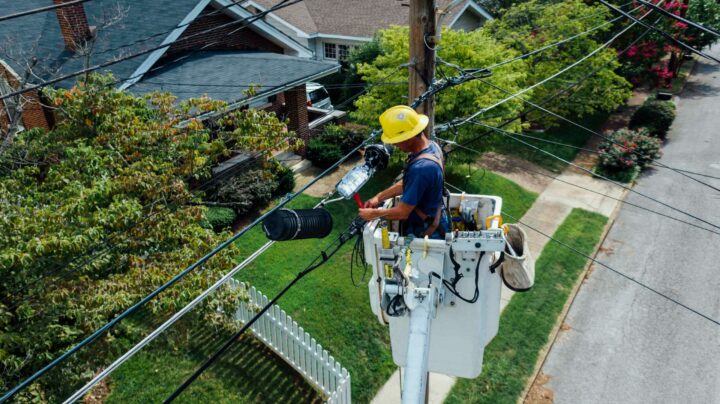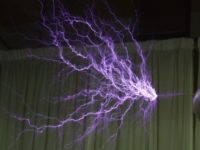The following contribution is from another author.
In an era where sustainability and technological advancement dominate the discourse, the role of electricians is undergoing a profound transformation. Traditionally associated with wiring buildings and fixing electrical systems, electricians are now at the forefront of a rapidly evolving landscape driven by renewable energy, smart technology, and the electrification of transportation. As we peer into the future, it becomes evident that electricians will play a pivotal role in shaping our electrified world.
Renewable Energy Integration
One of the most significant shifts in the electrical industry is the widespread adoption of renewable energy sources such as solar and wind power. As nations strive to reduce carbon emissions and transition towards cleaner energy alternatives, electricians are increasingly involved in the installation, maintenance, and integration of renewable energy systems. From rooftop solar panels to large-scale wind farms, electricians are essential in ensuring these systems operate efficiently and safely, thus contributing to the global push for sustainability.
Smart Technology Revolution
The proliferation of smart technology is revolutionising how we interact with our homes and businesses. Smart thermostats, lighting systems, security cameras, and appliances are becoming commonplace, offering increased convenience, energy efficiency, and connectivity. Electricians are tasked with installing and configuring these sophisticated systems, requiring a blend of electrical expertise and IT skills. As the Internet of Things (IoT) continues to expand, electricians will find themselves at the forefront of this technological revolution, ensuring seamless integration and optimal performance of smart devices.
Electrification of Transportation
The transportation sector is undergoing a seismic shift towards electrification, driven by concerns over air quality and climate change. Electric vehicles (EVs) are rapidly gaining traction, prompting the need for extensive charging infrastructure. Electricians are instrumental in the installation of EV charging stations, both in residential settings and public spaces. Moreover, advancements in battery technology and vehicle-to-grid (V2G) systems present new opportunities for electricians to innovate and adapt to the evolving needs of the automotive industry.
Skills of the Future
To thrive in this rapidly evolving landscape, electricians must continuously update their skills and knowledge. Beyond traditional electrical expertise, proficiency in renewable energy systems, smart technology integration, and EV infrastructure will be increasingly valuable. Familiarity with emerging technologies such as energy storage systems, microgrids, and home automation platforms will also be essential for staying ahead in the field.
Adapting to Regulatory Changes
As the electrical industry evolves, so too do regulations and safety standards. Electricians must stay abreast of changes in codes and compliance requirements to ensure their work meets legal and safety standards. Additionally, as renewable energy incentives and policies fluctuate, electricians must navigate a complex regulatory landscape to leverage opportunities in the burgeoning green energy sector.
Challenges and Considerations
While the future holds promise for electricians, it also presents challenges that must be navigated adeptly. One such challenge is the rapid pace of technological advancement, which demands continuous learning and upskilling to remain competitive in the field. Electricians must proactively seek out training programs and certifications to stay ahead of the curve.
Moreover, the transition towards renewable energy and smart technology requires significant upfront investment in equipment and training. Small businesses and independent contractors may face financial barriers to entry, necessitating strategic planning and resource allocation to stay viable in the market.
Another consideration is the evolving nature of the workforce itself. With an aging population of electricians approaching retirement, there is a growing need to attract and retain young talent in the industry. Encouraging diversity and inclusion, promoting apprenticeship programs, and highlighting the rewarding career opportunities in the electrical trade are essential strategies for replenishing the talent pipeline.
Furthermore, as electricians embrace new technologies and practices, cybersecurity emerges as a paramount concern. With the proliferation of connected devices and digital systems, safeguarding against cyber threats and ensuring data privacy have become integral aspects of the electrician’s role. Awareness of cybersecurity best practices and adherence to industry standards are imperative to protect both clients and critical infrastructure from potential vulnerabilities.
Collaboration and Innovation
Amidst these challenges, collaboration and innovation emerge as driving forces for progress in the electrical industry. Electricians must cultivate partnerships with other professionals, including architects, engineers, and energy consultants, to deliver holistic solutions that meet the evolving needs of clients.
Innovation in product design and installation techniques also holds immense potential for enhancing efficiency and sustainability in electrical work. From advanced energy monitoring systems to prefabricated modular components, embracing innovative solutions can streamline workflows, reduce costs, and minimise environmental impact.
Moreover, electricians have a unique opportunity to champion energy conservation and environmental stewardship in their communities. By promoting energy-efficient practices and advocating for renewable energy adoption, electricians can contribute to a more sustainable future while simultaneously expanding their market reach.
Conclusion
In conclusion, the future for electricians is characterised by both challenges and opportunities. As stewards of the electrified world, electricians must adapt to technological advancements, regulatory changes, and shifting market dynamics to thrive in the evolving landscape. By embracing innovation, fostering collaboration, and prioritising sustainability, electricians can position themselves as indispensable contributors to a brighter, greener future.















